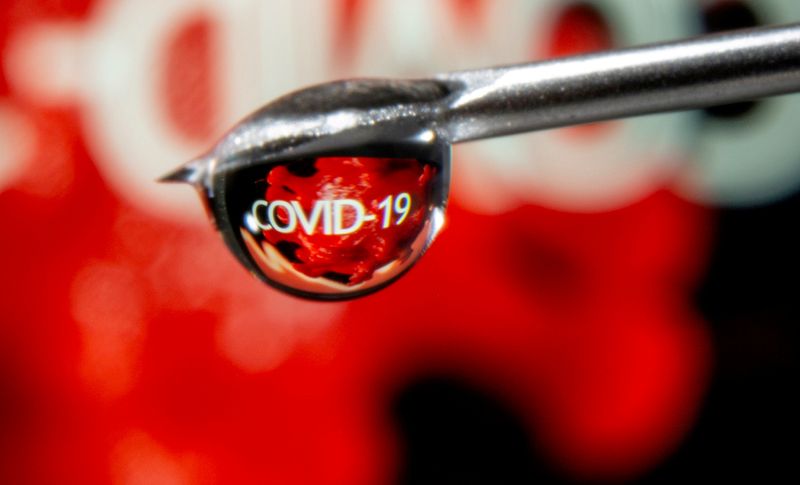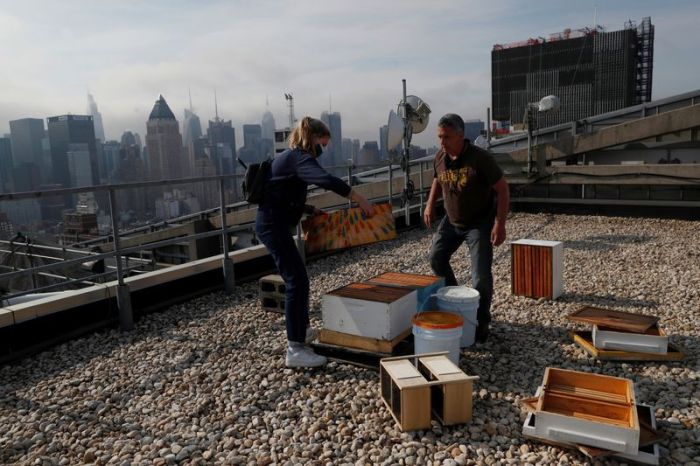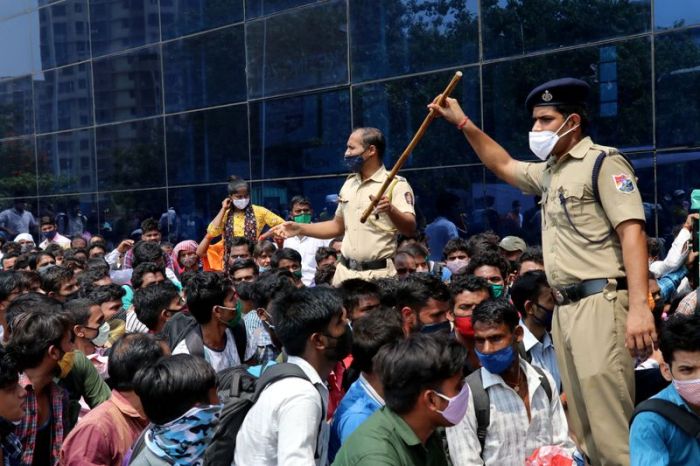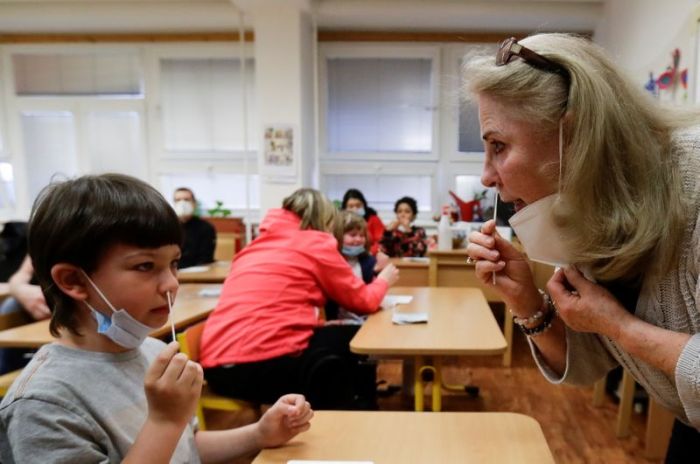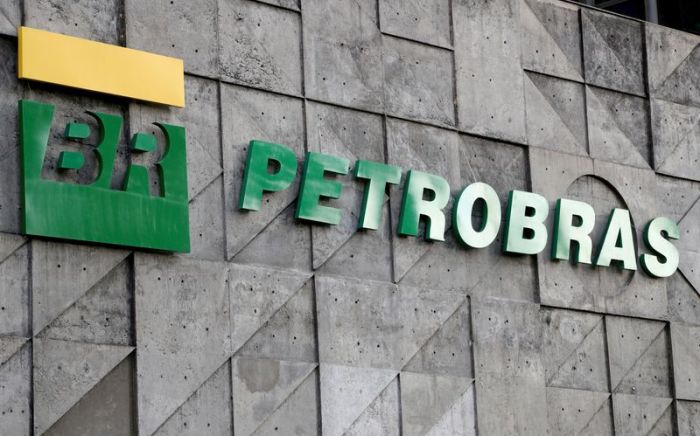(Reuters) -The following is a roundup of some of the latest scientific studies on the novel coronavirus and efforts to find treatments and vaccines for COVID-19, the illness caused by the virus.
Autoimmune disease treatments may reduce vaccine responses
Immunosuppressive drugs for inflammatory diseases like rheumatoid arthritis, multiple sclerosis, and ulcerative colitis can impair the body’s response to the COVID-19 vaccines from Pfizer/BioNTech and Moderna, according to new data. In 133 fully vaccinated people with such conditions, antibody levels and virus neutralization were about three-fold lower than in a comparison group of vaccinated individuals not taking those medicine, researchers reported on Friday on medRxiv ahead of peer review. Most patients in the study “were able to mount antibody responses in response to SARS-CoV-2 vaccination, which is reassuring,” said coauthor Alfred Kim from Washington University School of Medicine in St. Louis. It is not clear yet whether reduced antibody levels will result in decreased protection from infection or hospitalization, Kim said. Particularly concerning, he said, is the 10-fold reduction in vaccine-induced antibody levels seen in patients who routinely use steroids such as prednisone and methylprednisolone and a 36-fold reduction seen with drugs that deplete B cells, including Roche’s Rituxan (rituximab) and Ocrevus (ocrelizumab). Reductions in antibody levels were more modest with widely used rheumatoid arthritis drugs in the class known as TNF inhibitors such as Abbvie’s Humira (adalimumab) and Amgen’s Enbrel (etanercept); antimetabolites like methotrexate and sulfasalazine; JAK inhibitors like Pfizer’s Xeljanz (tofacitinib), gut-specific agents such as Takeda Pharmaceutical Co’s Entyvio (vedolizumab), and IL-12/23 inhibitors including Johnson & Johnson’s Stelara (ustekinumab). (https://bit.ly/2QmzRiY)
Most antibody drugs ineffective against Brazil variant
The coronavirus variant first identified in Brazil, known as P.1, is resistant to three of the four antibody therapies with emergency use authorization in the United States, according to a laboratory study. In test-tube experiments, researchers exposed the P.1 variant to various monoclonal antibodies, including the four currently being used to treat U.S. COVID-19 patients – imdevimab and casirivimab from Regneron Pharmaceuticals, and bamlanivimab and etesevimab from Eli Lilly and Co. Only imdevimab retained any potency, researchers found. The neutralizing ability of the other three were “markedly or completely abolished,” according to a peer reviewed report available on bioRxiv and provisionally accepted by the journal Cell Host & Microbe. The researchers also exposed P.1 to plasma from COVID-19 survivors and blood from recipients of vaccines from Pfizer/BioNTech or Moderna. Compared to their effects against the original version of the coronavirus, the plasma and the vaccine-induced antibodies were less effective at neutralizing P.1. In earlier studies, however, they were even less effective against the B.1.351 variant first identified in South Africa. This suggests that the Brazil variant might not pose as great a threat of reinfection or decreased vaccine protection as the South Africa variant, said coauthor David Ho from Columbia University. Real-world evidence is needed to confirm the lab results, he said. (https://bit.ly/2Qgv4j1)
South Africa variant can ‘break through’ Pfizer vaccine
The B.1.351 coronavirus variant discovered in South Africa can “break through” Pfizer/BioNTech’s COVID-19 vaccine protection to some extent, Israeli researchers have found. They compared almost 400 people who had tested positive for COVID-19 after one or two doses of the vaccine, against the same number of similar people with COVID-19 who were unvaccinated. The prevalence of the variant in Israel is low, and overall, it accounted for about 1% of all the COVID-19 cases in the study. But among those who received both doses of the vaccine, a larger proportion of COVID-19 infections were caused by B.1.351. The “disproportionately higher rate” of the South African variant in the fully vaccinated group (5.4%) compared to the rate in the unvaccinated group (0.7%) “means that the South African variant is able, to some extent, to break through the vaccine’s protection,” said Tel Aviv University’s Adi Stern. In a report posted on Friday on medRxiv ahead of peer review, Stern’s team said the research was not intended to deduce overall vaccine effectiveness against any variant, since it only looked at people who had already tested positive for COVID-19, not at overall infection rates in the community. (https://bit.ly/3sdVzCR; https://reut.rs/32aqvt0)
Open https://tmsnrt.rs/3c7R3Bl in an external browser for a Reuters graphic on vaccines in development.
(Reporting by Nancy Lapid and Maayan Lubell; Editing by Bill Berkrot)

